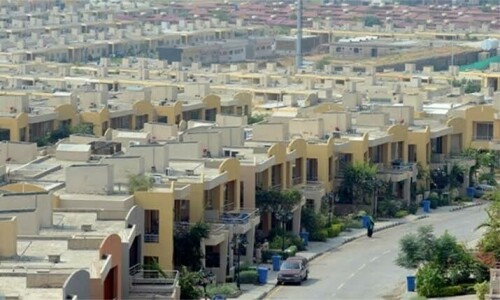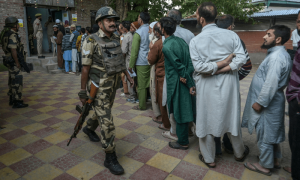ISLAMABAD: The first ‘Decent Work Country Profile for Pakistan’ will be launched by the International Labour Organisation (ILO) on December 15.
In view of the country’s devolution plan, the profile contains comparative analysis of provincial data, has identified policy gaps for future corrective measures and includes policy recommendations.
The Ministry of Overseas Pakistanis and Human Resource Development oversaw the formulation of the country profile with technical assistance of ILO, the Employers Federation of Pakistan and Pakistan Workers’ Federation.
The profile aims to provide information on all the elements of decent work in the country by analysing statistical and legal indicators within the framework of national labour and social policies.
‘Decent work’ is central to efforts to reduce poverty and is a means for achieving equitable, inclusive and sustainable development, involving opportunities for jobs that are productive and which deliver fair income, provide security in the workplace and social protection in line with the country’s development objectives.
According to a joint government-ILO document available with Dawn, limited progress was observed with regard to equal opportunity between 2001 and 2013, with only a marginal increase in the share of women employed as legislators, senior officials, managers and professionals.
The large and growing share of women working in the low-productivity agriculture sector poses substantial challenges on this front.
Other challenges include expanding education and employment opportunities for women, ensuring equal pay for work of equal value and reducing the gender inequalities in wage employment.
The non-fatal occupational injury rate rose between 2009 and 2013 and peaked in 2013.
Data on work-related fatalities from provincial administrative records showed a rising trend in occupational fatalities due to non-compliance of OSH laws attributable to weak enforcement and supervision, as well as inconsistent reporting by the registered organisations.
While the number of inspectors increased from 293 in 2001 to 337 in 2012, there is only one labour inspector for every 250,000 workers in the formal non-agriculture sector of the economy.
The limited data available shows that social protection coverage for the population has improved, although this improvement is focused more on the poorest and most vulnerable segments of society.
The document pointed out the data gaps in the administrative records of provincial labour departments, due to which a comprehensive assessment of Pakistan’s progress on social dialogue is not possible.
The number of industrial disputes in the country increased between 2001 and 2007, with consistent data being unavailable after 2008.
The number of workers involved and man-days lost as a result of the disputes was at a peak in the period 2004-07, with between 8,000 and 11,000 workers involved and 85,000 to 103,000 man-days lost.
The document says the share of employees working excessive hours (over 48 hours per week), declined from 43.6 per cent to 38.7 per cent during 2002-13, with a relatively smaller share of women working excessive hours in 2013. This proportion was higher in Sindh.
The share of under-utilised workforce — employed for fewer than 35 hours a week — increased slightly to 15 per cent in 2013, with a higher share of the rural employed being under-utilised.
Gender gaps continued to persist; the real earnings of women employees were only 64 per cent of those of men in 2013, with the gap narrowing during 2002-2013.
Published in Dawn December 13th , 2014











































